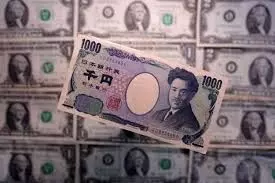Yen Strengthens After Japan Election; US Dollar Slips Amid Tariff and Rate Cut Concerns
Yen strengthens after Japan's election as ruling coalition loses majority; US dollar weakens amid tariff tensions and central bank rate cut speculations.
image for illustrative purpose

Following the ruling coalition's loss of the majority in Japan's upper house elections, the value of the Japanese yen increased on Monday. Major disruptions were limited since markets had essentially factored in the outcome despite the political defeat. Due to a public holiday, the Japanese financial markets were closed, making the yen a crucial gauge of investor mood.
Yen Increases in the Face of Political Uncertainty
From its 3.5-month low of 149.19 last week, the yen strengthened by 0.8% to 147.65 versus the US dollar. It also slightly increased in value relative to sterling (to 198.87) and the euro (to 172.10%).
In the 248-member chamber, Prime Minister Shigeru Ishiba's Liberal Democratic Party only managed 47 seats, falling short of the 50 required to retain a majority. Despite internal party pressure and opposition rumours of a no-confidence motion, Ishiba promised to stay in office.
Long-term political unrest could hurt Japanese assets and impede trade talks with the US, according to analysts like Commonwealth Bank's Carol Kong, even though markets anticipated a worse election result.
A Tariff Deadline Is Coming
The election results are released just a few days before Japan's deadline of August 1 to achieve a tariff agreement with the United States. If this isn't done, fresh trade tensions might arise. While the EU considers possible retaliatory actions, U.S. Commerce Secretary Howard Lutnick is still hopeful that an agreement with the EU can be finalised.
broader trends in the currency market
- The euro gained 0.2% to $1.1658.
- Dollars were worth $1.3467.
- Dollar Index dropped to 98.107, down 0.3%.
The US Federal Reserve and European Central Bank (ECB) meetings this week will now be the main focus. Markets are eagerly monitoring any indications of potential rate reduction, especially in light of President Trump's increasing pressure on the Fed, even though both are anticipated to keep interest rates unchanged.
Additional Market Transactions
The Q2 inflation data was below forecasts, which increased the probability of a rate decrease next month due to persistent economic weakness. As a result, the New Zealand dollar fell 0.1% to $0.5964.
In summary, the yen strengthened following the loss of the upper house majority held by Japan's ruling party, while investors around the world continue to monitor impending central bank meetings and U.S. tariff decisions.

